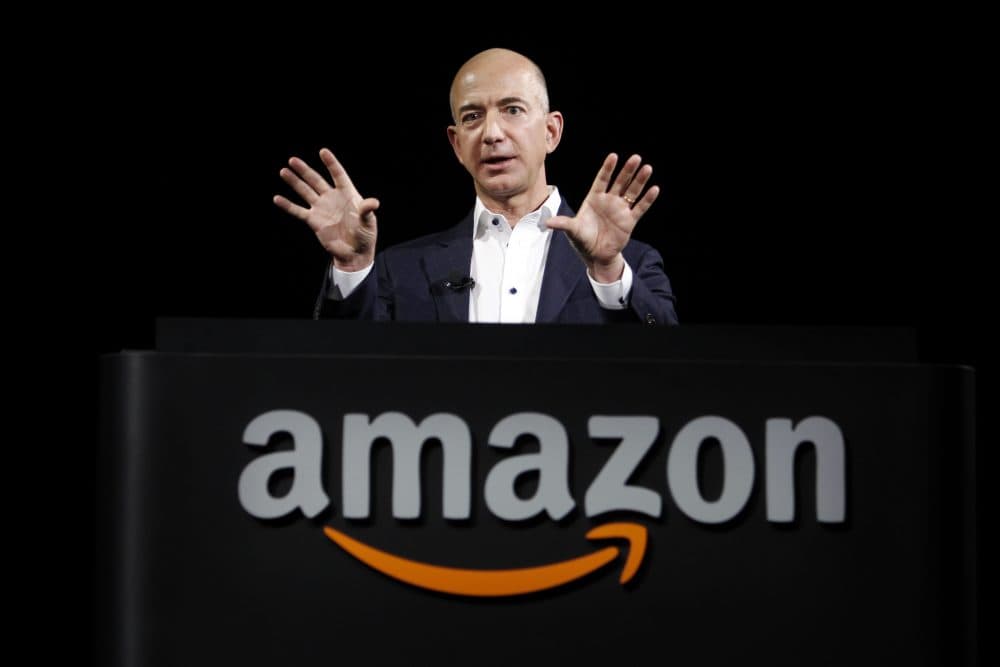Advertisement
The Government Is Supposed To Keep A Leash On Monopolies. Instead, It Is Letting Them Run Free

Fortune 500 companies rarely make sympathetic, tear-evoking victims. That’s the first thing that makes Barnes & Noble’s plight head-turning.
A New York Times column lamented the troubles at B&N, once regarded by bibliophiles as a malicious behemoth stomping small, independent bookstores. But oh, how the mighty have fallen. B&N’s online sales have gone over a cliff, and sales of Nook, its e-book reader, likewise have tumbled. Brick-and-mortar B&Ns have closed or cut workers, forcing the rollout of a comeback plan that includes smaller stores.
There’s another angle that makes this story noticeable, and worrisome. If Barnes & Noble were just another lumbering brontosaurus outmaneuvered by a nimble rival, it would merely illustrate capitalism’s fair-is-fair competition. And in truth, that’s part of the story, as surviving independent bookstores nick B&N’s profits.
But the bigger assault is coming from Amazon, with its low prices and reliable service. And like other tech companies, Amazon is behaving uncomfortably like a monopoly. That brings us to the biggest takeaway from this saga: The government, which is supposed to keep a leash on monopolies, is letting them run free.
A fight that once might have looked like King Kong vs. Godzilla is shaping up instead as Bambi Meets Godzilla, with B&N the fawn.
Just last week, a judge blessed AT&T’s marriage to Time Warner. That spooked consumer advocates who fear that the former — further unchained by the federal repeal of net neutrality the same week — could crush small-fry competitors in the streaming video business.
This increasingly concentrated business landscape is the backdrop for the Amazon-Barnes & Noble clash. A fight that once might have looked like King Kong vs. Godzilla is shaping up instead as Bambi Meets Godzilla, with B&N the fawn.
The “titan of twenty-first century commerce,” as one academic study dubs Amazon, claimed 45 percent of all online sales in 2017. Company founder Jeff Bezos’s fingers reach into publishing (he owns The Washington Post) and government (Amazon has current or potential contracts with federal intelligence and military agencies).
There’s no question that Bezos was a visionary in establishing his company, defying naysayers who said he was nuts. (No less than Warren Buffet expected Amazon to belly-flop.) As a frequent and satisfied Amazon customer, I’ve benefitted from that business savvy. But that aforementioned study, published in the Yale Law Journal, spies cause for concern about the house that Bezos built:
Advertisement
Although Amazon has clocked staggering growth, it generates meager profits, choosing to price below-cost and expand widely instead. Through this strategy, the company has positioned itself at the center of e-commerce and now serves as essential infrastructure for a host of other businesses that depend upon it. Elements of the firm’s structure and conduct pose anti-competitive concerns—yet it has escaped antitrust scrutiny.
Not that Donald Trump is ignoring Amazon. Oh no, our president blasts the company tirelessly — not for anti-trust, but apparently because his feelings have been hurt by the Post’s spot-on documenting of his fibs and fumbles. Bashing Bezos’s other business may be Trump’s route to revenge.
There’s an even bigger story than this president’s petty grudge-settling. Long before Trump moved into 1600 Pennsylvania Ave., the government embraced the theory that as long as big business kept prices low, benefitting customers, bigness was OK. Monopoly schmonoply; nothing to see here.
Now, a merger spree is underway across industries. But research suggests that while monopolies may not gouge consumers, monopsonies (big, dominant employers) are screwing workers. As Big Business stamps out competitors, leaving fewer firms at which to seek employment, workers must gravitate to those monopsonies and settle for whatever the CEOS are willing to pay.
That, the researchers say, appears to be one reason for our famously stagnant wages.
It’s time to revive the deal made by Theodore Roosevelt: Business could grow big, benefitting from economies of scale and the like. But government simultaneously would grow regulations and regulators, to make sure Big Business behaved itself.
Don’t think that only liberal academics are whining for a more muscular grip on monopoly. The market share of online behemoths like Amazon and Facebook, and their ability to erase competitors by buying them, has put regulation on the mind of conservative observers as well.
Perhaps a government probe would deem Amazon a good corporate citizen. For now, that’s all moot. Antitrust regulation is Uncle Sam’s ball, and he’s passing it to those unconcerned about monopoly’s non-price costs to society.
